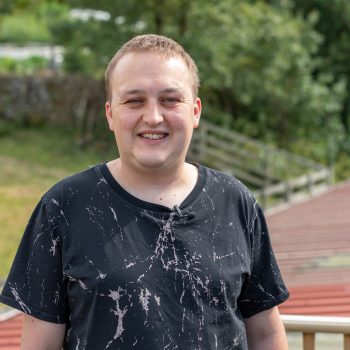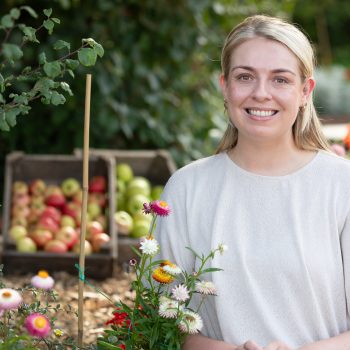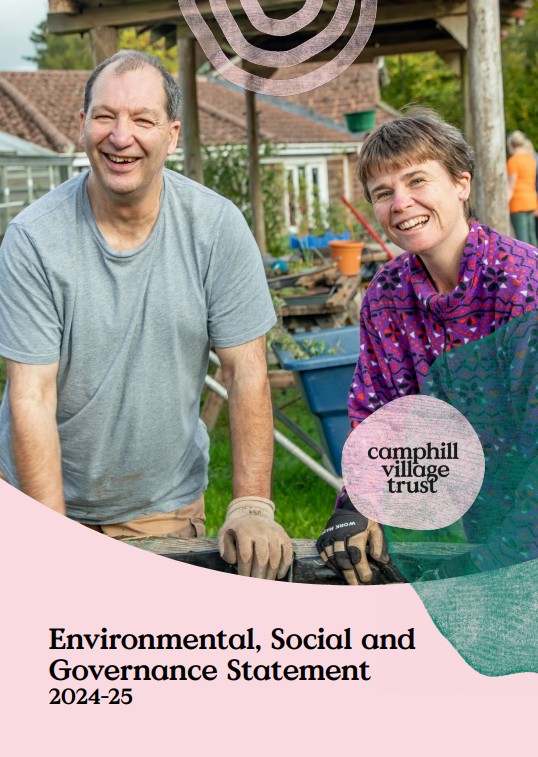Health and Wellbeing: ESG in Action
Every person has the right to a healthy, active life, and to feel their very best across their lifespan. That’s one reason why we place nature, movement, and nourishment at the heart of what we do. To create communities which thrive.
From the hard but rewarding work of composting, digging, planting and picking our own organic food, to the delicious healthy meals we prepare and enjoy together from our harvest, we nurture healthy lifestyles through connection to the land, to each other, and to our own wellbeing.
- This case study is part of our environmental, sustainability and governance (ESG) statement. Learn more about the project here.
Tackling health inequalities, together
Our farm-to-fork approach and nature-based activities are one piece of a much wider picture. We know that health inequalities are a national issue. Reports like LeDeR continue to show that people with learning disabilities, autistic people, and those with mental health support needs, face serious gaps in health outcomes, including shorter life expectancy and reduced access to healthcare.
That’s why we’re working collaboratively with community members, healthcare professionals, and academic researchers to improve access to healthcare and promote healthier lives, within our communities and across the UK.
Working with experts
We stand by the principle that “prevention is better than cure”. That’s why we focus on:
- - Encouraging healthy lifestyles through engaging, nature-based activities and seasonal, organic eating.
- - Providing clear, accessible information and education about physical wellbeing, tailored to individuals.
- - Connecting people with healthcare experts, like dietitians, who can provide lifestyle support and education, to reduce the risk of long-term conditions developing.
To help make health interventions more accessible for people with learning disabilities, we’ve connected our community members (experts by experience), with healthcare experts and researchers at Teesside University, as part of the LEAN (Lifestyle, Energy, Activity & Nutrition) academic research programme.
This project aims to tackle health inequality by offering a more accessible alternative to standard lifestyle and weight management programmes.
Simon's story
Botton Village community member, Simon, is enjoying being a paid co-researcher on the programme. He travels with a co-production team member to Teesside University to learn about nutrition and healthy living. He also helps to create accessible leaflets and PowerPoint slides, which will help teach future programme users about nutrition.
“It’s very important to me because I can learn as well as help other people know what sort of nutrition is important,” Simon said. “It will then go and help other people who will look at the LEAN project and see it is amazing work these people have put together, and they can follow the booklet and PowerPoint as a guide.”
A ‘first version’ of the LEAN programme was created a number of years ago by the Tees, Esk and Wear Valleys NHS Foundation Trust (TEWV), who have now received funding to modernize the programme, with help from people with learning disabilities.
With the help of people like Simon, the programme will not only benefit our communities but stands to improve access to nutrition and lifestyle interventions for people with learning disabilities nationwide.
Making healthcare accessible
Steph Smith, a clinical academic at TEWV NHS Foundation Trust, explains why these initiatives are so important for the people we support:
“We know people with learning disabilities and autistic people and those with severe mental illness are disproportionately affected by a number of diet and weight related conditions.
We also know that there is a real need to improve the eating environment and the systems level support for people with learning disabilities and mental health conditions.”
Simon is enjoying the lasting effects of what he learned from his involvement: “I would say I have learned some healthy habits from LEAN. Obviously exercising is important and I like going for nice long walks, swimming and I also play football."
“I think it's important to learn about nutrition because it's all about having a balanced diet and being healthy and knowing what things are actually good for you.”
Building a brighter future
At Camphill Village Trust, we’re not only supporting healthier lives today, we’re helping shape the future of inclusive healthcare.
Through a partnership with Teesside University, dietetics students have joined our Botton Village and Larchfield Communities for hands-on placements. These experiences offer a powerful two-way benefit: our community members gain access to preventative healthcare and practical lifestyle education, while students develop the skills and insight they’ll carry into their careers, and the wider healthcare sector.
Steph Smith has supervised many of these placements. She sees first-hand how transformative they can be: “Working within an organisation that has such varying communication needs and preferences is so, so important for our students. To then take that into the workforce - if you can communicate with different groups of people - that's such an important skill”.
Among those students are Jenna and Megan, who have been working closely with community members to co-create accessible healthy recipe booklets. They’ve also led inclusive activity sessions designed to spark enthusiasm for movement and wellness, tailored to suit individual abilities, preferences, and interests.
Their work is helping make healthy living more understandable, enjoyable, and achievable for Larchfield Community members.
The importance of accessible, person-centred communication has been a valuable piece of learning for Megan:
“You go from uni, where it's quite jargon based and you use quite a lot of technical terms for different things, but here there's a lot of diverse needs, and the types of communication can be quite specific to each person”
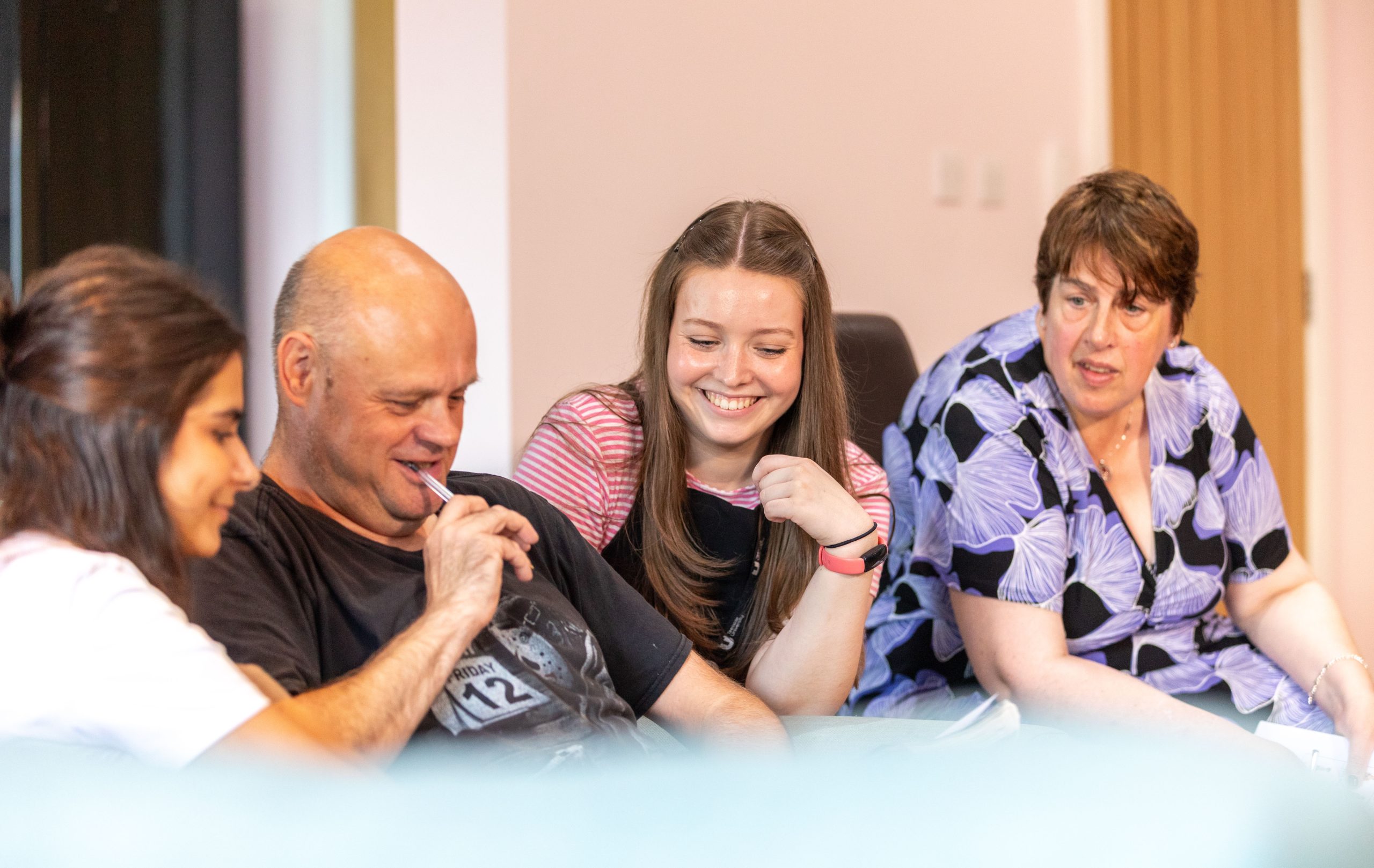
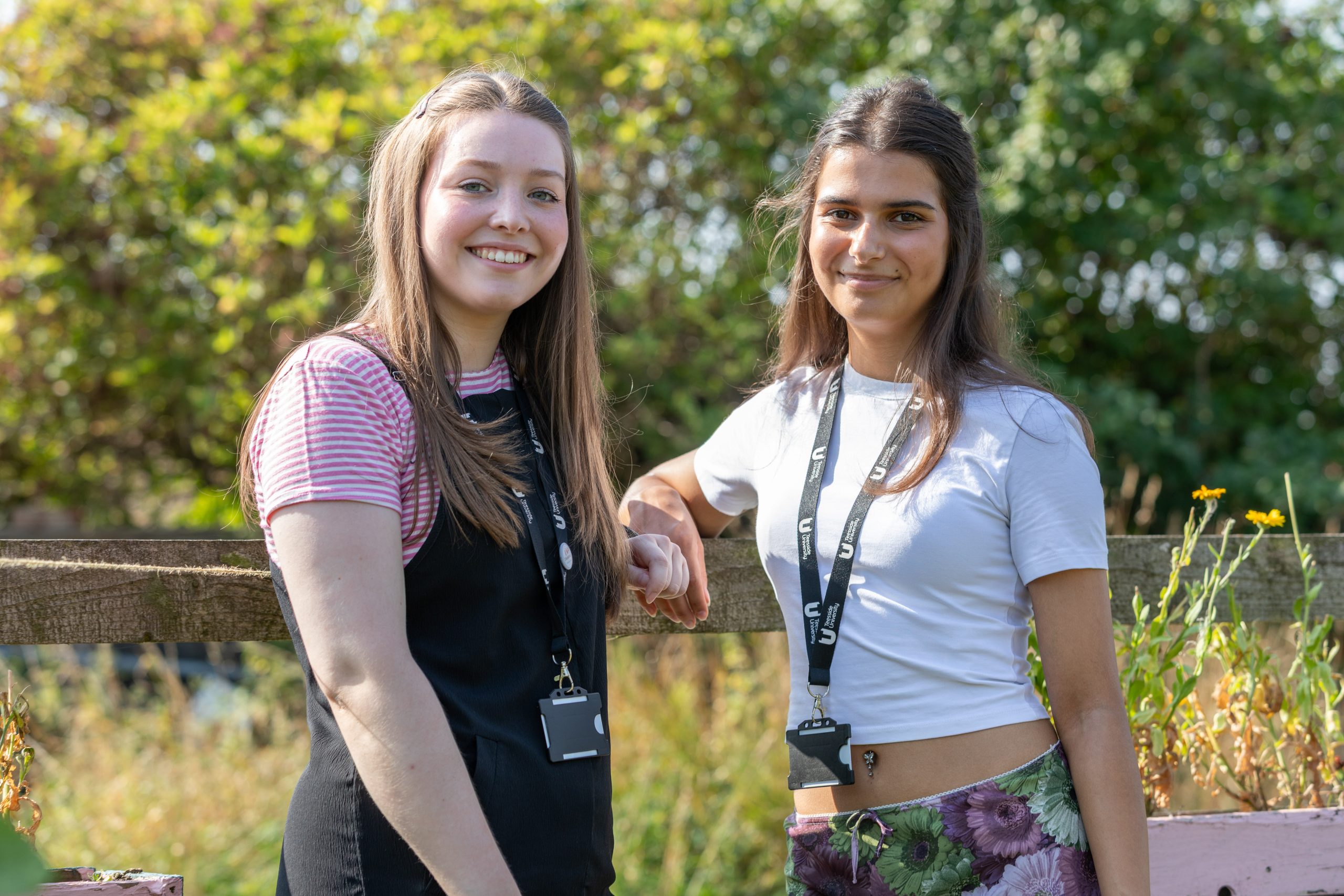
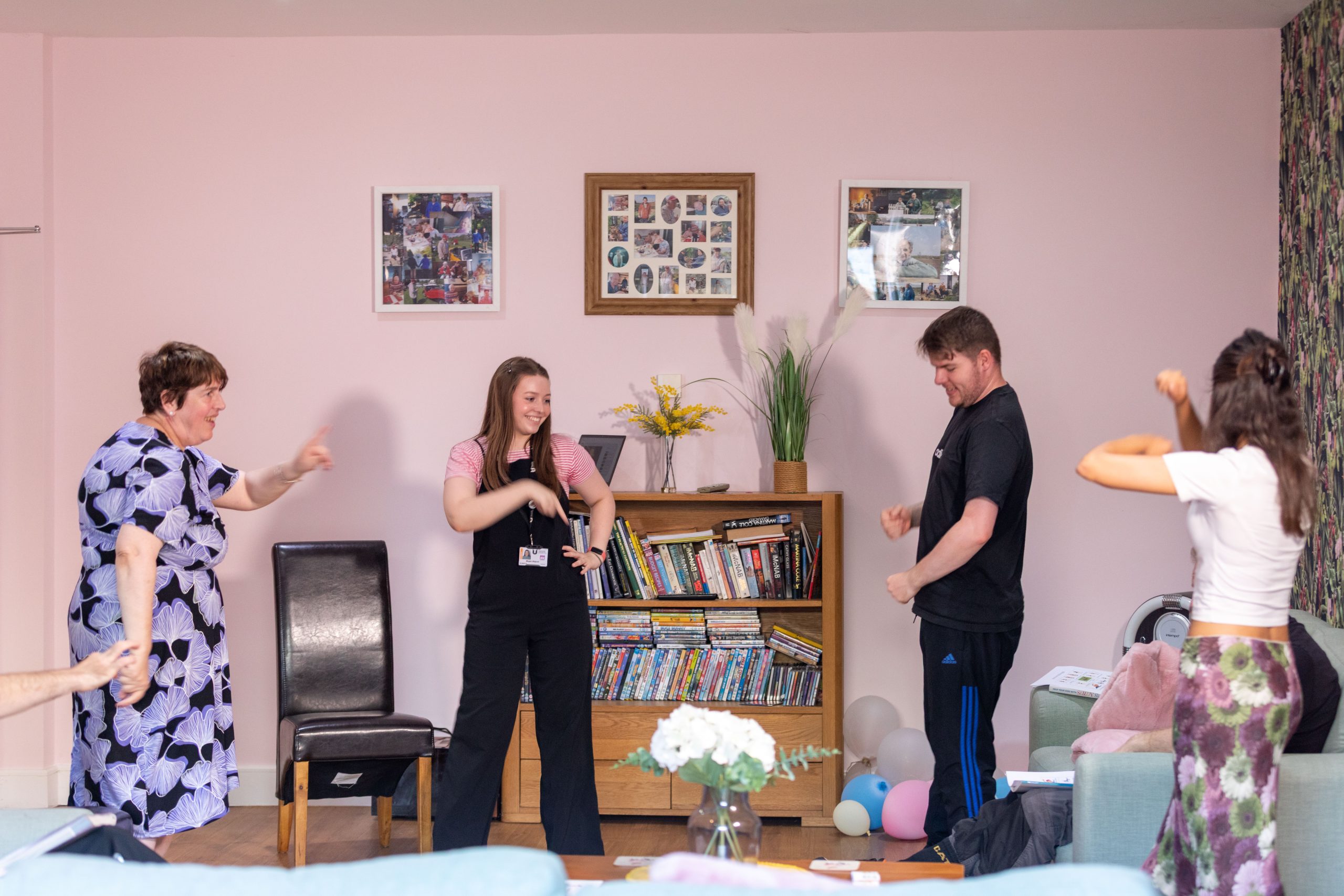
For Jenna, the value of co-production is something she’ll take away from her time in our Larchfield Community:
“I think especially when it comes from a good place, it can be quite easy to just make assumptions and make decisions on behalf people with learning disabilities. But, when we've been here and we've been talking to people and getting to know what they think about different situations and their ideas, their contributions can be really valuable”.
Steph echoes this sentiment, reflecting on what healthcare providers can learn from the co-production embedded in our communities: “One of the things our students take away from these placements is the value of co-production. And it's something that we could all do better at within health and care services. But it's so authentically at the heart of Camphill Village Trust that it's just the expectation and the norm from day one”.
Looking ahead: Health equity rooted in nature and community
We’re proud of the powerful role our community members play in challenging health inequalities, not just for themselves, but for others across the country.
We’re also proud of the healthy, active lifestyles we nurture, made possible by the incredible people who shape our communities every day; from community members and healthcare professionals to researchers and donors. Together, we’re growing a future where a healthy life is accessible for all, rooted deeply in both nature and community.
Learn more about how we’re putting ESG into action, through environmental care, social impact, and good governance:

